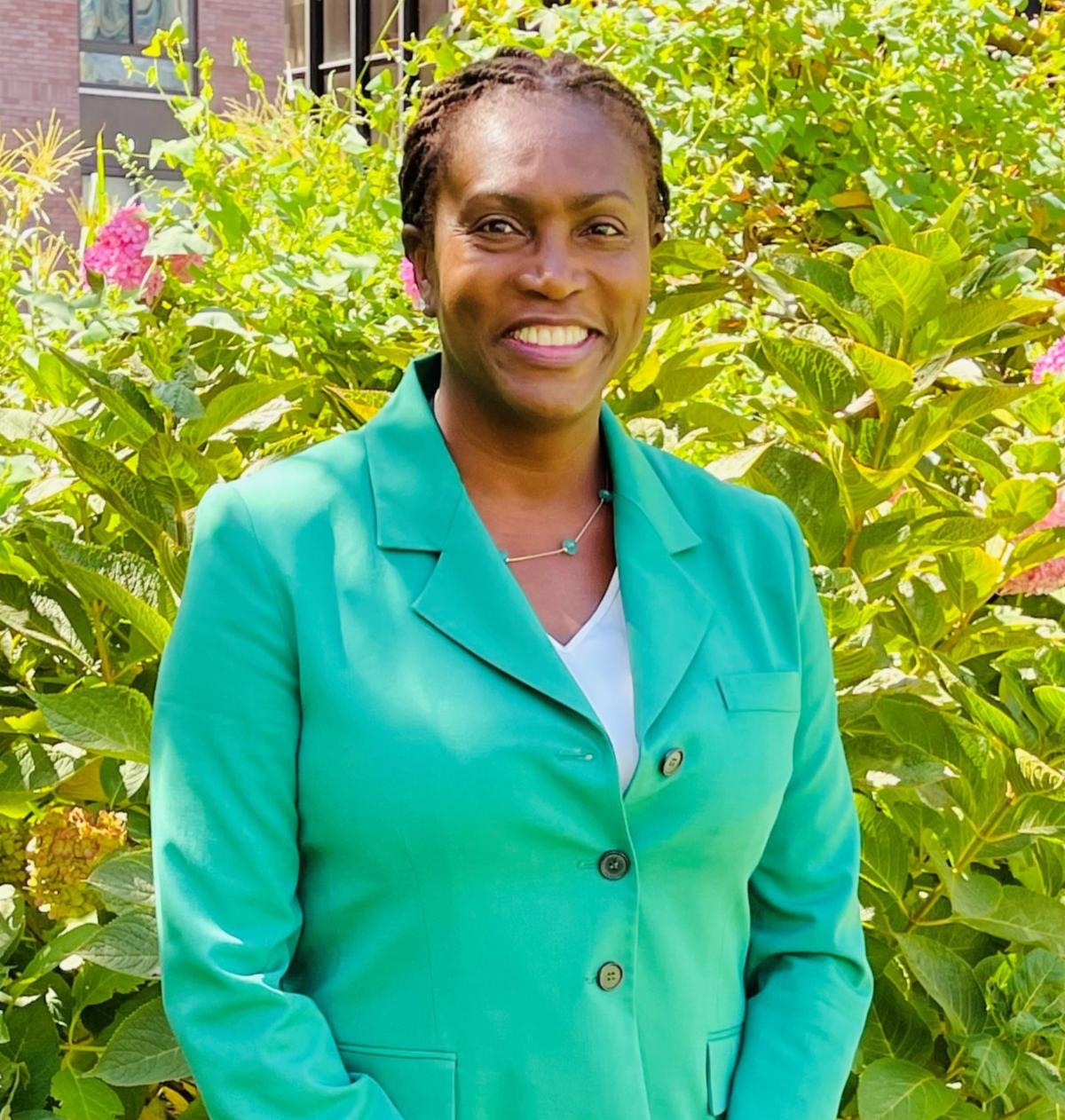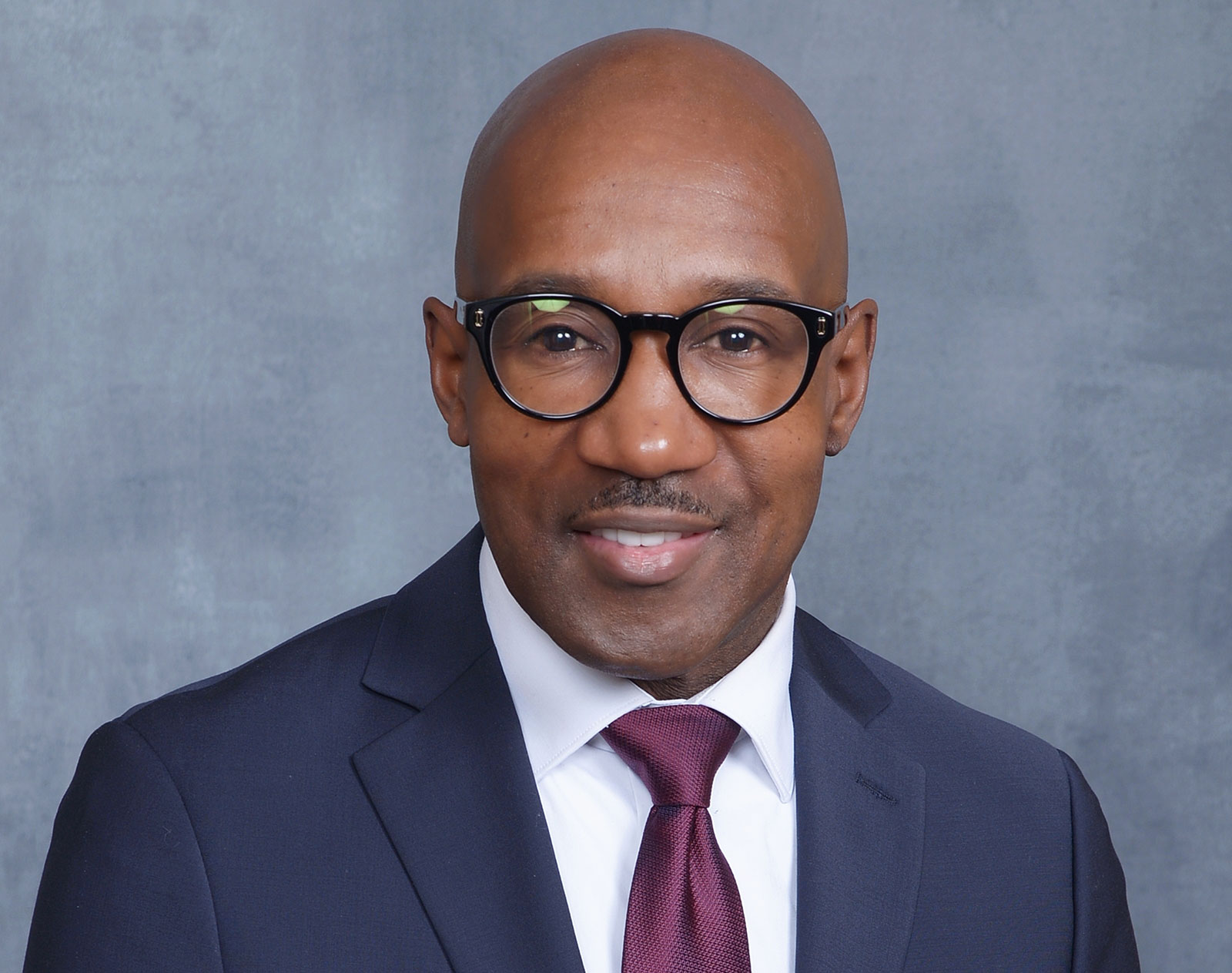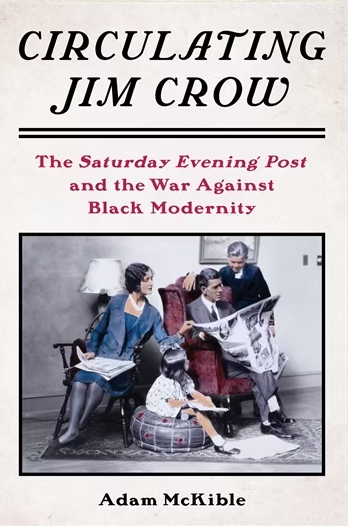Home » 2024
Yearly Archives: 2024
Honoring the Legacy of Dr. Maureen Allwood

John Jay College staff in the Office for the Advancement of Research join the college community in mourning the passing of Dr. Maureen Allwood, a distinguished researcher, educator, advocate, and friend. Dr. Allwood’s sudden departure on Monday, March 4, in Providence, Rhode Island, has left a profound void in the hearts of those who knew her. Yet, her legacy of warmth, inspiration, and tireless dedication to marginalized communities will endure for generations.
A valued scholar in the field of psychology, Dr. Allwood’s work focused on understanding the developmental effects of trauma and violence, particularly emphasizing their disproportionate impacts on different sociodemographic groups. At John Jay College, she was a beacon of academic excellence and served as a professor of psychology since 2007. She also co-directed the department’s mentorship program for underrepresented and first-generation undergraduate students, leaving an indelible mark on the community with her passion and expertise. Her commitment to fostering diversity, equity, and inclusion within academia was unwavering, and her impact extended far beyond the classroom.
While grieving, her profound impact on the John Jay College community resonates deeply. Reflecting on her legacy, Dr. Angela Crossman, the Interim Dean of Faculty and Professor in the Department of Psychology where Dr. Allwood worked, aptly captured the sentiments of many, stating:
“Dr. Allwood’s passing was an incredible shock that is still difficult to fathom and is a tremendous loss to us all. She was a brilliant scholar, a passionate mentor and teacher, a dedicated and thoughtful colleague, and a warm and kind friend. I admired her greatly, appreciated the important work she was doing on the impact of trauma and violence exposure on youth development, and was always incredibly grateful that she chose to make John Jay her academic home. The world is a better place for her having been a part of it, and she will be deeply missed by her friends, family, colleagues, and students – students who will carry on her legacy of impactful and important scholarship conducted with integrity, rigor, and care.” said Dr. Crossman.
Beyond her scholarly pursuits, Dr. Allwood’s impact was deeply personal, touching the lives of students, colleagues, and friends alike. Professor Daryl Wout, Chair of the Psychology Department and Associate Professor of Psychology, emphasized her brilliance and passion to spearhead efforts to cultivate a more inclusive environment within our College and at the CUNY university level.
“Dr. Allwood was a beloved member of the John Jay community. She was an active department member and contributed to our students’ development and our clinical program’s growth. She fiercely advocated for an increased focus on diversity, equity, and inclusion (DEI) and spearheaded various DEI efforts at the college and university levels. Her research on the developmental effects of trauma and violence and their disproportionate impacts on different sociodemographic groups has significantly impacted our understanding of this important area. As a mentor, she was extremely supportive and nurturing of her students. She always prioritized her students and their success, even while on sabbatical. Beyond her impact at the College, she was a loyal friend, an exceptional mother, and a committed wife. As a community, we have been blessed by her presence and are deeply mourning her sudden death. She will forever be in our hearts and minds.” said Daryl Wout.
Reflecting on Dr. Allwood’s profound influence, Distinguished Professor Kevin Nadal wrote in his Instagram post, “She was a no-nonsense educator and mentor—someone who wanted her students to succeed while always encouraging them to work their hardest and never make excuses. She was an extraordinary colleague—one of the few humans who made an oppressive place like academia feel welcoming. SHE is what a professor looks like.”
Dr. Maureen Allwood received the 2023 OAR Scholarly Excellence Award winner, exemplifying a commitment to excellence, and has won several accolades and grants for the College. Her most recent groundbreaking study, “Youth Exposure to Gun, Knife, and Physical Assaults,” which examined PTSD symptoms across various demographic groups, was notably featured in Impact Magazine 2023 of the John Jay College of Criminal Justice. Her legacy, as showcased in Impact Magazine, serves as a testament to her enduring influence in shaping our understanding of critical societal issues.
As we honor Dr. Maureen Allwood’s memory, let us carry forward her excellence, compassion, and advocacy legacy. Though she may no longer be with us, her spirit will continue to inspire us to strive for a more just and equitable world.
John Jay Institute Director Champions Education, Advocacy, and Policy Change for Black Empowerment

In celebration of Black History Month 2024, Andre Ward, the Executive Director of the John Jay Institute for Justice and Opportunity, reflects on a journey shaped by personal experiences within the criminal legal system. From incarceration to becoming the John Jay Research Center Director, his experiences drive a vision to empower formerly incarcerated individuals through education and to influence policy changes addressing social and racial inequalities. Read more about his background in the Q&A below.
As we celebrate Black History Month, can you share a bit about the journey that led you to John Jay’s Institute for Justice and Opportunity and a professional achievement that you believe has contributed to advancing justice and opportunity for the Black community?
I came to the institute as a result of my past involvement with College Initiative in 2009. I was released from incarceration on January 16, 2009 (the day Martin Luther King Jr’s birthday was observed), and two weeks later, I enrolled in Medgar Evers College. Earning both undergraduate and graduate degrees from CUNY’s Medgar Evers and Herbert H. Lehman Colleges, respectively, created opportunities for me to deepen my commitment to empowering the Black Community. After earning my Master’s Degree in Social Work, I was asked by the department chair at Medgar Evers College to return as an adjunct lecturer, where I taught mostly Black (and Latinx) students for 4 ½ years. Following this professional achievement, I localized myself in non-profit reentry/policy/advocacy work, culminating in a major New York City legislative win with the passage of the Fair Chance for Housing Act in December 2023. This legislation would prevent people with a conviction record from being discriminated against when applying for housing. For many justice-impacted college students like those whom we serve at the Institute for Justice and Opportunity, housing is indispensable to creating stability. This important legislation would protect them and the other 750,000 New Yorkers (80% of whom are Black and Latinx) from being denied access to housing solely on the basis of past justice system involvement.
How has your previous experience prepared you for the role of Research Center Director at the Institute for Justice and Opportunity?
Being directly impacted by the criminal legal system and working with diverse groups and students who had and did not have justice system involvement has prepared me for the role of Research Center Director at the Justice and Opportunity Institute. Additionally, my training as a social worker, policy/legislative change agent, and advocate for justice, fairness, and equity in education, employment, and housing – especially for people with conviction records – has also prepared me for this role. Serving in various capacities in New York City non-profit starting with providing job readiness/career coaching to facilitating academic and life skills workshops for students at Baruch College’s SEEK program and overseeing restorative justice/alternatives to incarceration work for young adults ages, serving as director of workforce development and executive leveled roles in advocacy and education and employment services, has prepared me for this role. My experience of being incarcerated has also served to prepare me for this role.
What is your vision for the Institute in promoting justice and opportunity, particularly within the context of Black communities?
My vision is to expand how we equip formerly incarcerated students with the knowledge and skills necessary for securing gainful employment, an essential factor often impeded by the stigma of a criminal record. Deepening existing stakeholder relationships while simultaneously innovating in areas of program service provision is part of my vision to move toward national and international education efforts.
Given the current social and racial inequalities landscape, how do you see the institute’s role in influencing policy changes that address these disparities?
The institute can support advocacy efforts that address discrimination in education. It can also join voting rights efforts to get our students involved in changing policy/legislation that impacts their lives. Through narrative sharing and engaging elected officials in the city and state, IJO’s students can become empowered to organize their communities to facilitate change. By doing so, members of the community become co-creators of public safety, thus creating the world they want to see and be in.
How do you see the institute actively contributing to the ongoing narrative of Black history and progress?
Education transcends the mere acquisition of knowledge; it serves as a catalyst for personal transformation. For formerly incarcerated individuals, this transformation can be profound. Education instills self-worth, purpose, and a vision for the future, offering a beacon of hope and a pathway to self-improvement. IJO will continue to serve as a place where justice-involved students can come. And through the impact IJO has on students, coupled with students developing an understanding of themselves, they will become assets to the community, creating a history of contribution that adds value to the black community and humanity.
IJO will actively nurture essential life skills, including critical thinking, problem-solving, and decision-making, which can be a powerful tool for psychological healing, helping individuals overcome the stigma and emotional burdens associated with their criminal history.
Western and Redburn (2017) emphasize in their seminal work, Education as Crime Prevention: The Case for Reinvesting in Prison Higher Education, that the role of education is to serve as a platform for self-improvement and a means for shifting individuals’ perspective from their past to their potential. This transformational aspect of education is pivotal in successfully reintegrating formerly incarcerated individuals into society, and IJO will maintain this work – especially during Black History Month.
How are you celebrating Black History Month?
I am celebrating Black History Month by actively making monetary and skills contributions to small Black organizations that support the communities we come from and focus on reentry and higher education services for people with a conviction record. I am also celebrating the amazing good fortune I have to serve our students alongside my deeply committed colleagues at IJO. Together, we are making a difference in the lives of Black people in particular, and humanity generally – one powerful academic student at a time.
Read more about the John Jay Institute for Justice and Opportunity here.
How Black Writers Sought Justice During the Jim Crow Era

In American media history, the Saturday Evening Post, often celebrated for its nostalgic portrayal of American life, undergoes a critical analysis in the groundbreaking book “Circulating Jim Crow: The Saturday Evening Post and the War Against Black Modernity” by Dr. Adam McKible, associate professor of English at John Jay College. This study challenges the idealized image of the iconic publication, exposing its deep connections to racist ideologies during the Jim Crow era, contrary to the widely held belief that the magazine offered an uncomplicated reflection of American life.
The book begins with Dr. McKible exploring the career of George Horace Lorimer, an editor who propelled the Saturday Evening Post to prominence during the modernist era and established the magazine’s remarkable influence. With a readership in the millions, the magazine played a pivotal role in shaping public opinion and influencing households across the nation. Under Lorimer’s editorship, the magazine fueled anti-immigration sentiments by promoting nativist politics and racial pseudoscience, contributing to policies that closed the nation’s borders to immigrants from diverse regions, including southern and eastern Europe, Africa, Asia, and the Caribbean.
“The magazine under Lorimer was very involved in ginning up anti-immigrant sentiment in America and making Americans suspicious of other Americans based on their racial origin,” said Dr. Mckible in an interview with John Jay Research.
 Focusing on the Harlem Renaissance, Dr. McKible’s research also exposes how the Saturday Evening Post portrayed African Americans and responded to changes in Black American life during the Harlem Renaissance. He unveils the magazine’s subtle but insidious approach to addressing the era’s transformations, coining the phrase “register and re-contain” to describe how the magazine acknowledged black achievements only to undermine them through racist stereotyping.
Focusing on the Harlem Renaissance, Dr. McKible’s research also exposes how the Saturday Evening Post portrayed African Americans and responded to changes in Black American life during the Harlem Renaissance. He unveils the magazine’s subtle but insidious approach to addressing the era’s transformations, coining the phrase “register and re-contain” to describe how the magazine acknowledged black achievements only to undermine them through racist stereotyping.
Dr. McKible’s findings reveal that despite recognizing the emergence of black modernity, the magazine consistently endeavored to restrain and belittle black accomplishments, transforming them into subjects of ridicule or disregard. This dismissive approach extended to influential figures such as Booker T. Washington and other black leaders during the Harlem Renaissance, as the Saturday Evening Post downplayed their contributions.
In response, black writers resisted the magazine’s narratives by taking aim at the white writers who were widely recognized as Saturday Evening Post authors. By naming such figures, as famous Post authors as Octavus Roy Cohen and Irvin S. Cobb, Harlem Renaissance writers signaled their displeasure with and resistance to the caricatures and stereotypes perpetuated by Lorimer’s magazine.
“With the help of the Saturday Evening Post, America took on the work of establishing Jim Crow, legally and culturally. These were not legal efforts but instead cultural maneuvers designed to denigrate, demean and dismiss black humanity, to take back everything that happened during Reconstruction and destroy it,” says Dr. Mckible in an interview.
Expanding the history to contemporary implications, Dr. McKible emphasizes the importance of truth-telling, challenging nostalgia, recognizing that America’s history is fraught with complexities, and acknowledging the deep-rooted racial inequalities that persist.
“The contemporary media should always tell the truth,” Dr. Mckible emphasizes.
Dr. McKible’s groundbreaking research redefines our understanding of the Saturday Evening Post and contributes to contemporary discussions about media responsibility, representation, and the ongoing struggle for racial equality.
Read about Dr. McKible’s Research here.



Recent Comments